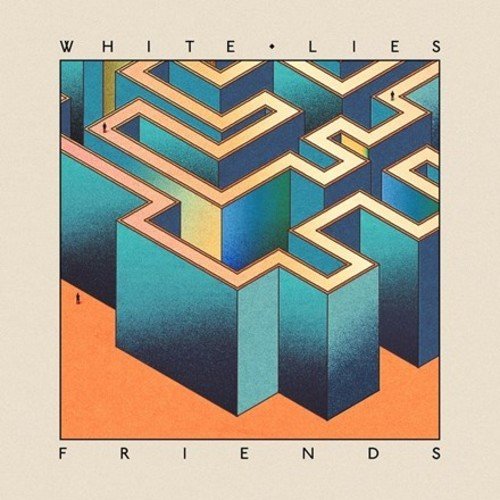
White Lies
Friends
Release Date: Oct 7, 2016
Genre(s): Pop/Rock, Alternative/Indie Rock
Record label: BMG Rights Management
Music Critic Score
How the Music Critic Score works
Buy Friends from Amazon
Album Review: Friends by White Lies
Acceptable, Based on 5 Critics
Based on rating 7/10
Since their debut, 2009's impressive To Lose My Life..., Britain's White Lies have stayed remarkably true to their crisply delivered brand of brooding, emotive post-punk. Centered on the yearning croon of lead singer/guitarist Harry McVeigh, White Lies also feature bassist Charles Cave and drummer Jack Lawrence-Brown. Together, they craft an undeniably attractive sound that matches hooky choruses and poetic lyrics with a moody, bass-heavy sound that owes a large debt to '80s icons like Joy Division and The Teardrop Explodes.
Based on rating 3
It is often all too easy for bands to be pigeonholed. First impressions count in the music industry and White Lies are a perfect example of a band who have struggled to shake off the ‘moody rockers’ label they were given following the success of their debut LP, 2009‘s To Lose My Life. The record’s central theme of mortality, plus the trio’s gloomy demeanor, meant that they were lazily dismissed as Joy Division wannabes by some.
Based on rating 2.5/5
While White Lies’s Big TV was a concept album focused on the theme of young lovers moving to a big city, the London trio’s follow-up, Friends, is more concerned with the forces that compel young people to move away from one. Bassist and lyricist Charles Cave has cited the impact of the shifting dynamics of friendship when people reach their late 20s as the album’s inspiration—and, indeed, Friends explores the distance, both figurative and literal, that can grow within those friendships as time passes. Heartache and loneliness have been a persistent thread since White Lies’s 2009 debut, To Lose My Life…, which framed those issues through a lens of gothic imagery, desperate love, and a fixation on the inevitability of death, but Friends confronts a loneliness that’s more interpersonal than existential.
Based on rating 4.5/10
Perhaps, for White Lies, it was a case of the difficult third album, rather than the second. After all, it was on 2013’s Big TV that they found themselves up against it, with credibility to claw back. Its predecessor, Ritual, was a strange album; it overwhelmingly gave off the impression of a band who seemed surprised that they’d even gotten to make a second record.
Based on rating 4/10
There are certain things, like wine and cheese, that get better with age. They mature and develop new flavours. Each time White Lies come back, part of me hopes that they too will have changed for the better. I listen to the first few songs and get excited, because while they may not be any different to the material they’ve put out before, they have some life and energy behind them.
'Friends'
is available now

